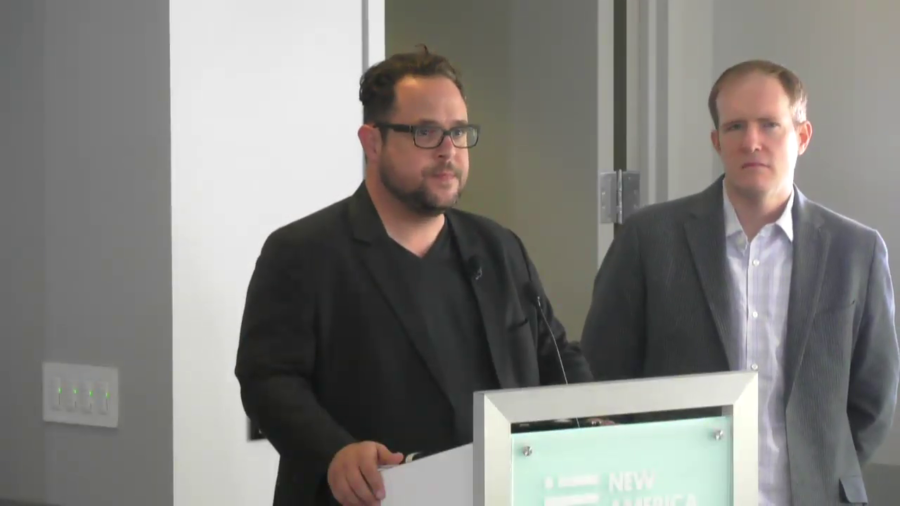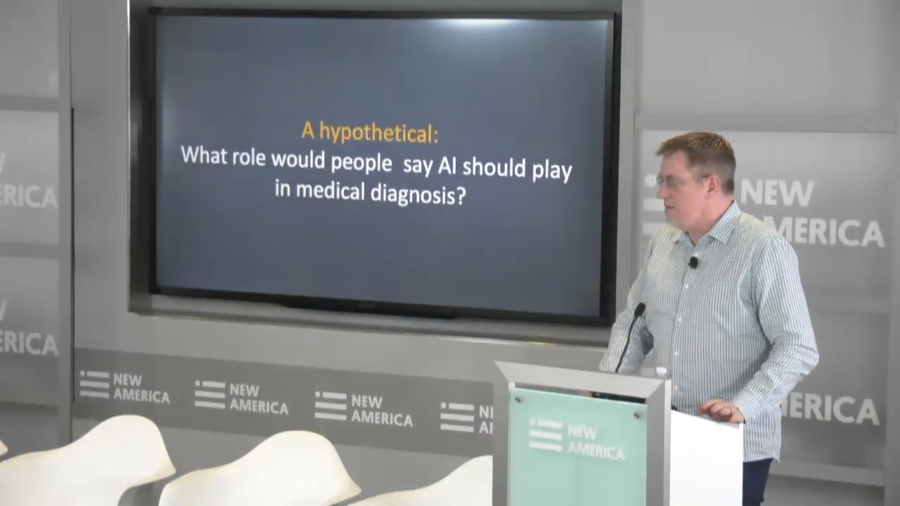AI Policy Futures is a research effort to explore the relationship between science fiction around AI and the social imaginaries of AI. What those social measures can teach us about real technology policy today. We seem to tell the same few stories about AI, and they’re not very helpful.
Archive
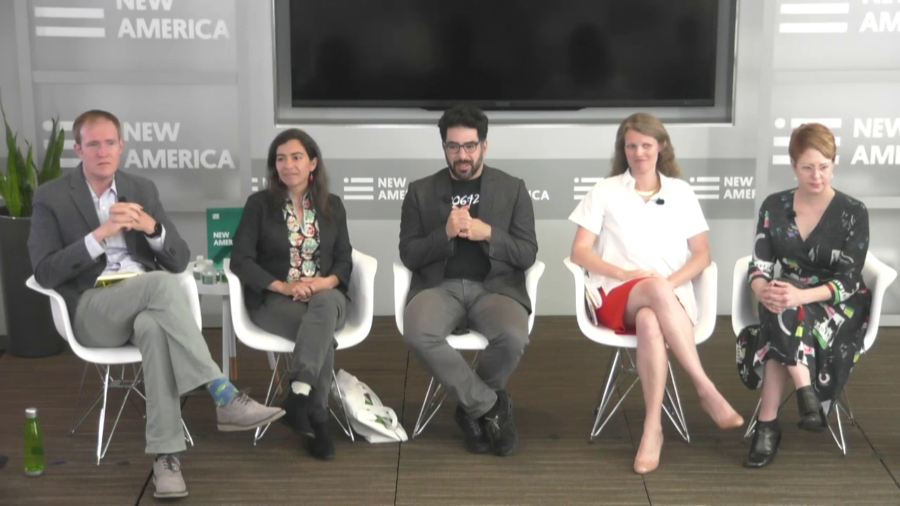
This is going to be a conversation about science fiction not just as a cultural phenomenon, or a body of work of different kinds, but also as a kind of method or a tool.
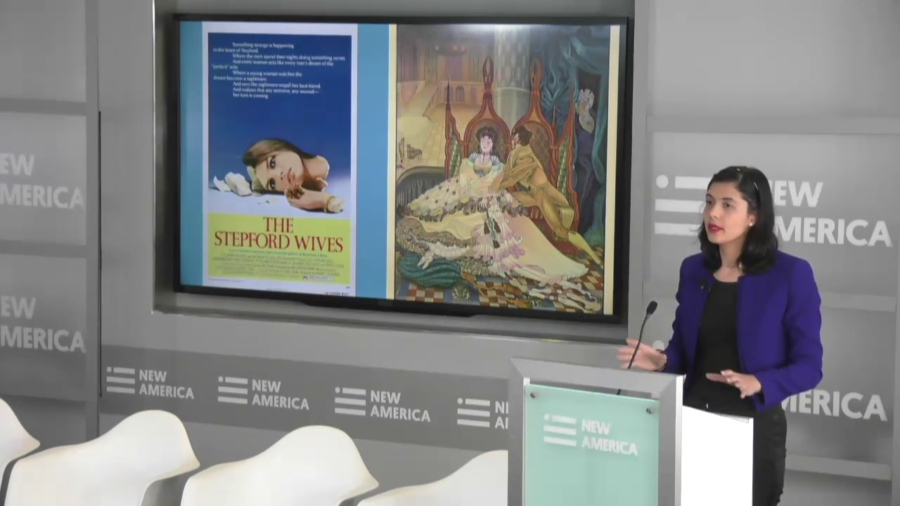
We came up with the idea to write a short paper…trying to make some sense of those many narratives that we have around artificial intelligence and see if we could divide them up into different hopes and different fears.
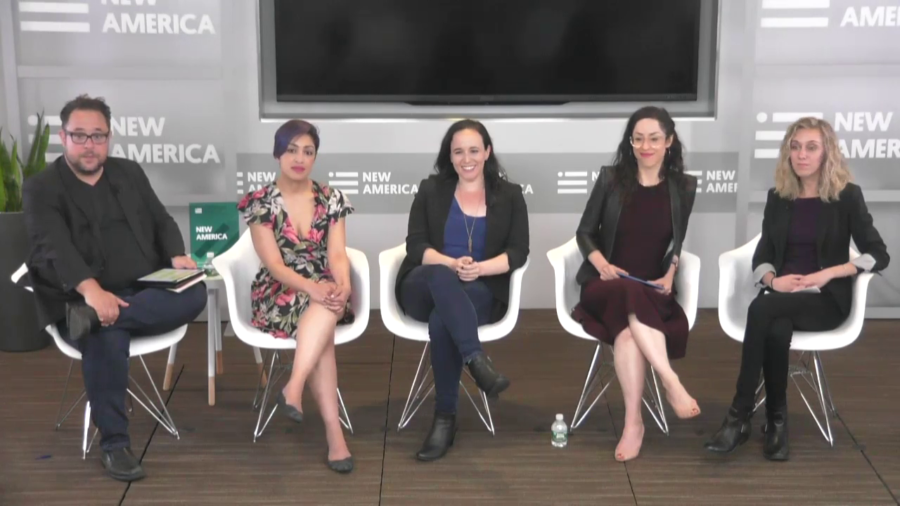
When data scientists talk about bias, we talk about quantifiable bias that is a result of let’s say incomplete or incorrect data. And data scientists love living in that world—it’s very comfortable. Why? Because once it’s quantified if you can point out the error you just fix the error. What this does not ask is should you have built the facial recognition technology in the first place?
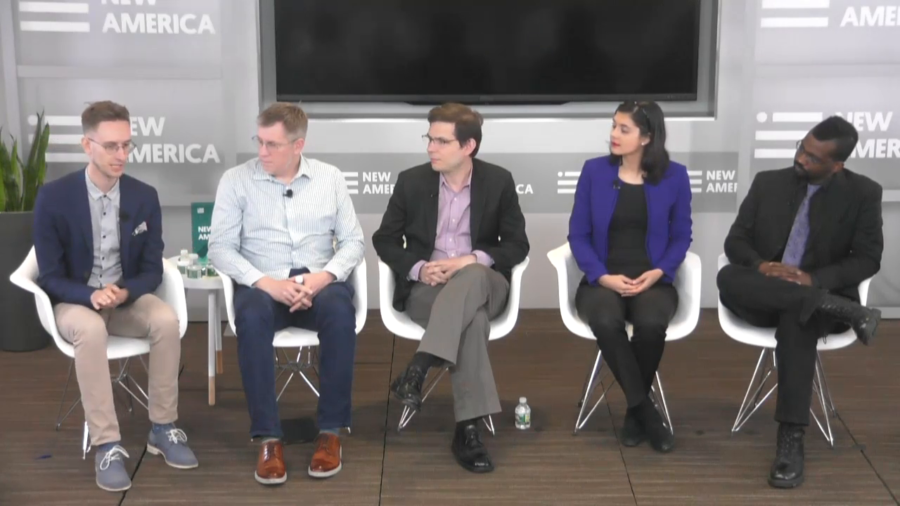
What I hope we can do in this panel is have a slightly more literary discussion to try to answer well why were those the stories that we were telling and what has been the point of telling those stories even though they don’t now necessarily always align with the policy problems that we’re having.
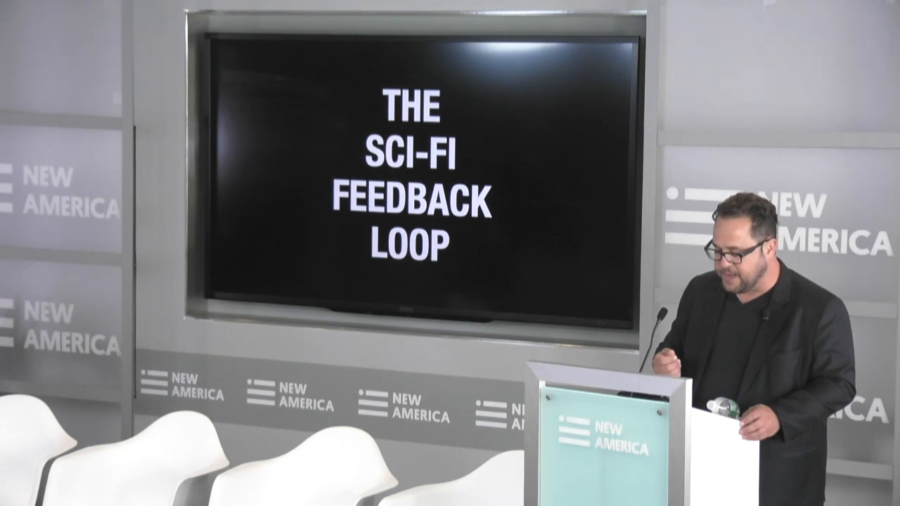
We’re here because the imaginary futures of science fiction impact our real future much more than we probably realize. There is a powerful feedback loop between sci-fi and real-world technical and tech policy innovation and if we don’t stop and pay attention to it, we can’t harness it to help create better features including better and more inclusive futures around AI.

